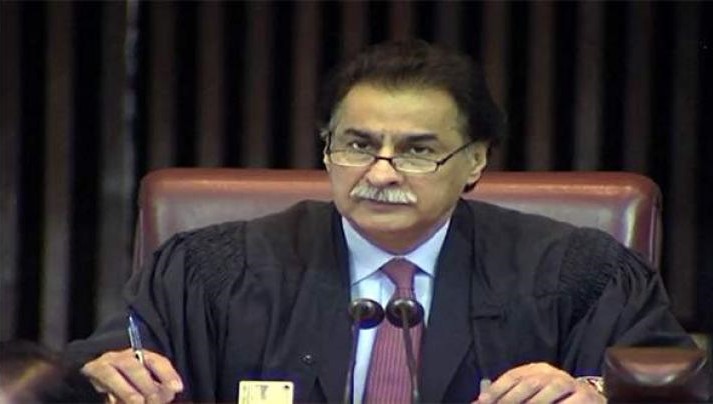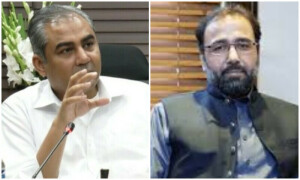ISLAMABAD: Speaker National Assembly, Sardar Ayaz Sadiq has termed the large scale human rights violations in Indian illegally occupied Jammu and Kashmir (IIOJK)) and Palestine as a trial of the conscience of the modern world.
Speaking during his meeting with the President of the Republic of Belarus Alexander Lukashenko in Minsk, Belarus on Wednesday, he said that the severe Human Rights violations in IIOJK and Palestine warrant immediate attention of the civilized world, said a news release received here.
Sardar Ayaz Sadiq said that resolving the Kashmir issue as per resolutions of the United Nations Security Council was pivotal for regional peace and stability, and an immediate ceasefire in Gaza was also essential for ending the Palestinian Genocide.
You may be interested
He said that Pakistan was the least contributor to climate change but the most severely affected Nation due to the devastating impact of climate change.
The Speaker NA further stated, “The issue of global climate change requires global efforts.” While highlighting the friendly ties between both nations, he said that Pakistan and Belarus enjoy cordial ties based on shared interests.
He expressed his resolve to strengthen relations between both nations further. The Speaker added, “Pakistan is blessed with vast potential in energy and trade.”
Ayaz Sadiq also said that Pakistan-Belarus Bilateral Relations are characterized by mutual respect. He further underscored that Pakistan-Belarus ties would expand through collaboration in economic, industrial, and agriculture sectors. During the meeting, matters related to enhancing bilateral relations, including trade and parliamentary relations, were deliberated in detail.
Both sides also expressed determination to further strengthen bilateral relations. The President of Belarus, Aleksandr Lukashenko remarked that Belarus attached great importance to its close ties with Pakistan. While expressing the desire to further expand bilateral cooperation with Pakistan, he added, “Pakistan has great potential in Energy, Trade and Agriculture Sectors.’














